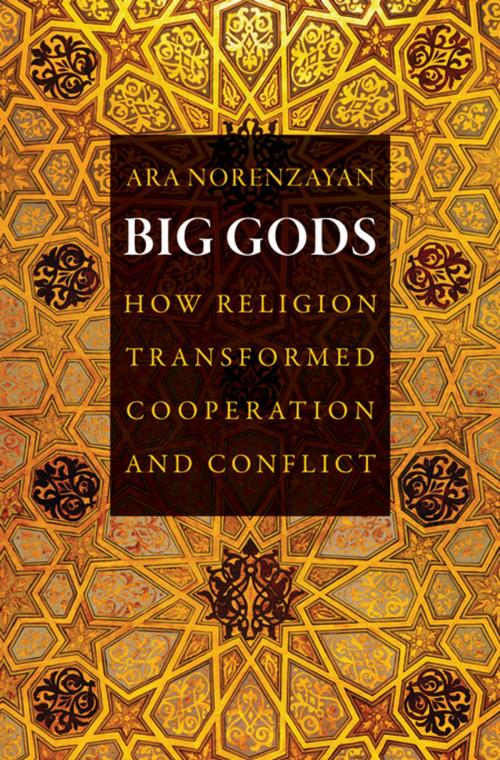Big Gods
How Religion Transformed Cooperation and Conflict
Nonfiction, Social & Cultural Studies, Social Science, Sociology, Marriage & Family, Religion & Spirituality, Reference, Comparative Religion, Health & Well Being, Psychology| Author: | Ara Norenzayan | ISBN: | 9781400848324 |
| Publisher: | Princeton University Press | Publication: | August 25, 2013 |
| Imprint: | Princeton University Press | Language: | English |
| Author: | Ara Norenzayan |
| ISBN: | 9781400848324 |
| Publisher: | Princeton University Press |
| Publication: | August 25, 2013 |
| Imprint: | Princeton University Press |
| Language: | English |
How did human societies scale up from small, tight-knit groups of hunter-gatherers to the large, anonymous, cooperative societies of today--even though anonymity is the enemy of cooperation? How did organized religions with "Big Gods"--the great monotheistic and polytheistic faiths--spread to colonize most minds in the world? In Big Gods, Ara Norenzayan makes the surprising and provocative argument that these fundamental puzzles about the origins of civilization are one and the same, and answer each other.
Once human minds could conceive of supernatural beings, Norenzayan argues, the stage was set for rapid cultural and historical changes that eventually led to large societies with Big Gods--powerful, omniscient, interventionist deities concerned with regulating the moral behavior of humans. How? As the saying goes, "watched people are nice people." It follows that people play nice when they think Big Gods are watching them, even when no one else is. Yet at the same time that sincere faith in Big Gods unleashed unprecedented cooperation within ever-expanding groups, it also introduced a new source of potential conflict between competing groups.
In some parts of the world, such as northern Europe, secular institutions have precipitated religion's decline by usurping its community-building functions. These societies with atheist majorities--some of the most cooperative, peaceful, and prosperous in the world--climbed religion's ladder, and then kicked it away. So while Big Gods answers fundamental questions about the origins and spread of world religions, it also helps us understand another, more recent social transition--the rise of cooperative societies without belief in gods.
How did human societies scale up from small, tight-knit groups of hunter-gatherers to the large, anonymous, cooperative societies of today--even though anonymity is the enemy of cooperation? How did organized religions with "Big Gods"--the great monotheistic and polytheistic faiths--spread to colonize most minds in the world? In Big Gods, Ara Norenzayan makes the surprising and provocative argument that these fundamental puzzles about the origins of civilization are one and the same, and answer each other.
Once human minds could conceive of supernatural beings, Norenzayan argues, the stage was set for rapid cultural and historical changes that eventually led to large societies with Big Gods--powerful, omniscient, interventionist deities concerned with regulating the moral behavior of humans. How? As the saying goes, "watched people are nice people." It follows that people play nice when they think Big Gods are watching them, even when no one else is. Yet at the same time that sincere faith in Big Gods unleashed unprecedented cooperation within ever-expanding groups, it also introduced a new source of potential conflict between competing groups.
In some parts of the world, such as northern Europe, secular institutions have precipitated religion's decline by usurping its community-building functions. These societies with atheist majorities--some of the most cooperative, peaceful, and prosperous in the world--climbed religion's ladder, and then kicked it away. So while Big Gods answers fundamental questions about the origins and spread of world religions, it also helps us understand another, more recent social transition--the rise of cooperative societies without belief in gods.















